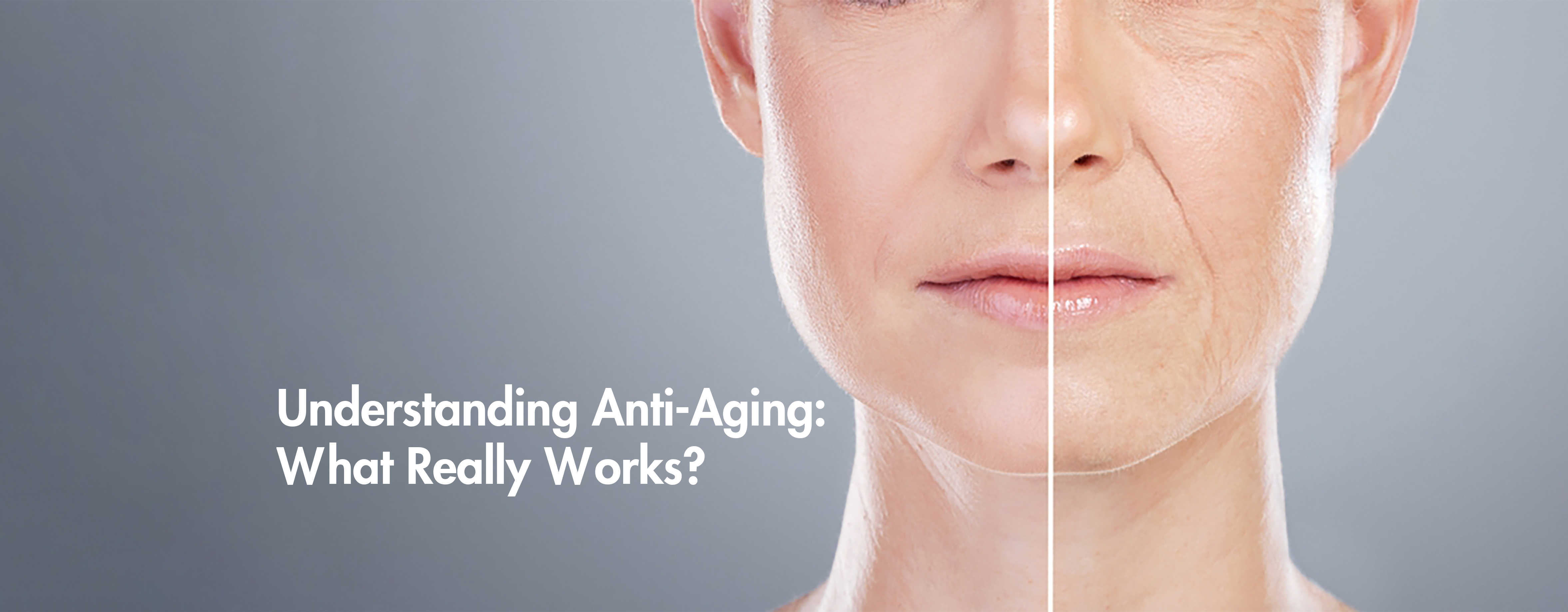
In the ever-evolving world of skincare, the term "anti-aging" often sparks a mix of curiosity and skepticism. With countless products promising to turn back the clock, it can be difficult to separate fact from fiction. So, what actually works when it comes to preserving youthful skin? Let’s dive into the science and strategies behind effective anti-aging skincare.
As we age, our skin undergoes several natural changes:
Understanding these biological processes helps us target them more effectively with skincare and lifestyle adjustments.
Lifestyle Factors That Influence Skin Aging
Skincare alone isn’t enough. Here are a few habits that significantly impact how your skin ages:
- Sleep: Skin regenerates during deep sleep. Aim for 7–9 hours nightly.
- Diet: Antioxidant-rich foods, omega-3 fatty acids and proper hydration support skin from the inside out.
- Stress management: Chronic stress increases cortisol, which can break down collagen.
- Avoid smoking and excessive alcohol: Both contribute to faster skin aging and dullness.
No product or routine will completely stop the aging process—and that’s okay. The goal is to support your skin as it matures, not to erase every line. Aging is natural and beautiful; effective skincare simply helps us feel more confident in our skin at every stage.
Final Thoughts
When it comes to anti-aging, consistency is key. Focus on using proven ingredients, maintaining a healthy lifestyle and protecting your skin daily. With the right approach, you can age gracefully and radiantly—no magic required.
When it comes to anti-aging skincare, one of the most frequently asked questions is: “When should I start?” The answer might surprise you — it’s often earlier than you think.
Dermatologists agree that anti-aging skincare isn’t just about correcting wrinkles. It’s about prevention. Starting early helps protect your skin from damage and keeps it looking youthful for longer.
Even if you don’t see any signs of aging yet, your 20s are the ideal time to build a strong skincare foundation. Around this age, collagen production begins to decline slowly and environmental stressors can start to impact your skin.
What to Use:
Dermatologist Tip: Starting early with preventive care gives your skin long-term benefits and slows visible aging.
This is when early signs of aging, like fine lines or dullness, might begin to appear. It’s a great time to add more targeted ingredients that support collagen production and skin renewal.
What to Add:
As you reach your 30s and beyond, your skin may start showing visible signs of aging such as wrinkles, dark spots, and loss of firmness. At this stage, your focus should be both prevention and correction.
Key Ingredients to Use:
Pro Tip: Be consistent. Skincare products take time to show results, so avoid switching too frequently.
Your Takeaway
You don’t need to wait for the first wrinkle to start an anti-aging routine. In fact, your early 20s are a great time to begin with basic protection and hydration. As your skin matures, you can gradually introduce more active ingredients tailored to your needs.
Aging is natural — but healthy, glowing skin at any age comes from consistent, thoughtful care.